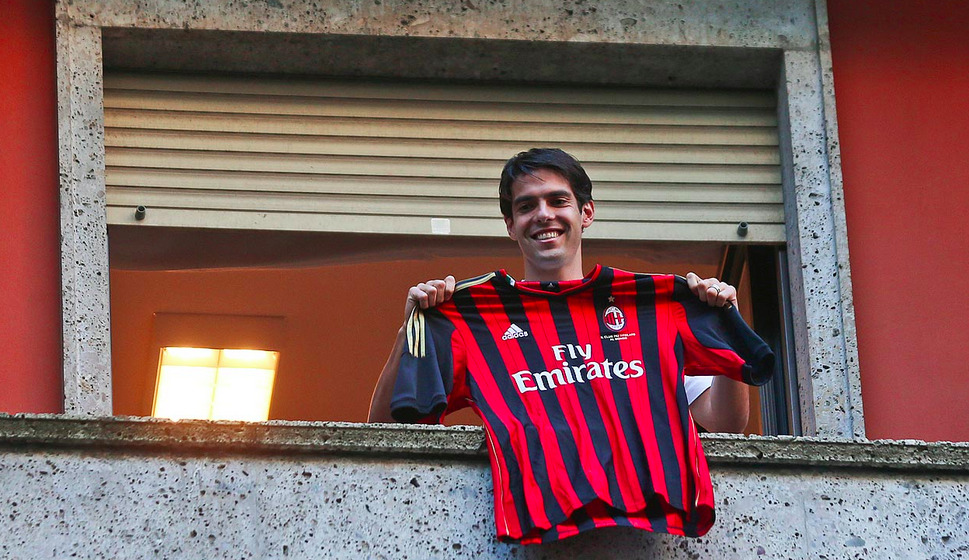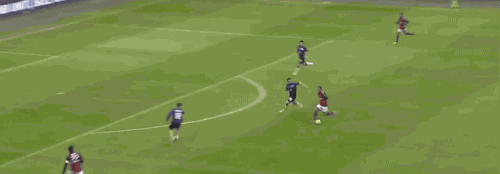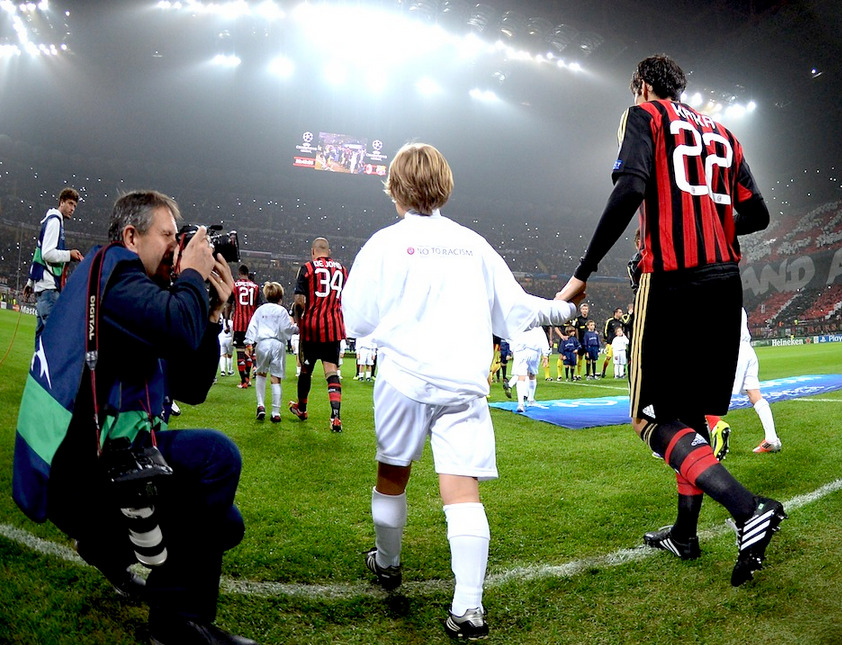Already a great in Milan, what is Kaka looking for?
Already a great in Milan, what is Kaka looking for?

Already a great in Milan, what is Kaka looking for?
Even journalists asked for his autograph, the ultimate sin. Even the fans who make the most intimidating stadium in Europe stood and applauded for Kaka. He dashed across the field at Celtic Park in November like he did on that famous night in 2007 against Manchester United when two defenders ran into each other as he headed the ball by them.
What’s always present is his composure. Kaka stands tall and scans and navigates the field while running with perfect posture. (That’s all the more remarkable given that he was almost left paralyzed after slipping off a slide at a swimming pool.) Not all of the passes hit the target, although not much is hasty either. And when it’s just him and the ‘keeper, he often rolls the ball into the net, gently.
It was a dream for Kaka to play just once for Brazil. “But the Bible says God can give you more than you even ask for,” Kaka said years ago, “and that is what has happened in my life.” Since then he’s won the Ballon d’Or, a Champions League trophy, 2002 World Cup, the Club World Cup and titles in La Liga and Serie A. He has scored 29 goals in the Champions League — more than any other Brazilian — and perhaps most unlikely of all, he is scoring for AC Milan once again.
Few could imagine he would get his 100th goal or wear the armband for the Rossoneri. On the first game of 2014, he did both. The club sold him to Real Madrid for €65-million in 2009, and he left Milan with 95 goals over those first six seasons. It always seemed wrong. There were tears of the eyes and then tears of ligaments.
Playing through the pain in the 2010 World Cup, Kaka put his career in serious jeopardy after suffering several issues with his knee. Madrid still had to pay him €10-million a year. But he didn’t really belong to them. Kaka sent a text message on the day Milan celebrated their 18th title: “My compliments. We are champions of Italy.”
Still, Kaka did some good work in Spain, supplying 12 assists during the 2011-12 season. That was a career-high, and Madrid won La Liga. Obstacles littered the way between Kaka and Milan — taxes scared the Italians — and multiple times they tried and failed to reunite. “Nobody gets a diamond for free,” Jose Mourinho said that August. “You want a diamond, you pay for it.”
A year later Kaka flew back to Milan a free man, back to his kingdom. It’s no surprise Carlo Ancelotti, the new manager of Real Madrid, was the one to let him go. Kaka was 22 when he first moved to Northern Italy, and he made the number famous on the back of his shirt. A fresh-faced, shy, polite Brazilian who looked like a student. He was only missing books and a knapsack. “Kaka didn’t have anything of a Brazilian footballer,” Ancelotti said. “He reminded me of a Jehovah Witness.”
One of the things about Kaka is that he is genuine. He may have played for more clubs than one but he is loyal. Though he has grown up, and he isn’t always the nicest on the field anymore. Kaka was holy water to the devil in Gennaro Gattuso, his fellow midfielder. Now mud stained his shirt, streaks of Gattuso in Kaka: The eyebrows looked a little meaner, and he wasn’t afraid to push away a teammate like Mario Balotelli. A beard grew. Angry fans negotiated with him. He argued and yelled at officials.
It surprised us: the cleanest player could get dirty. Already he has two yellow cards — on top of the six goals and three assists in 14 starts. After every goal he would raise his arms to the sky to thank God. More than ever he wanted to score in front of Curva Sud, the section of supporters that chants his name, but the first goal in his second debut with Milan came at the other end and so did the 100th tally.
The fans have protested and criticized and put down the club, a team of misfits in the middle of the standings, but Kaka is the source of unity. He is truly theirs. Only Marco van Basten, Andriy Shevchenko and Pippo Inzaghi have scored more goals than Kaka in this, the era of Silvio Berlusconi — and they are all strikers.
The speed is not all there but the vision remains. Forgive him: his legs don’t pack the same revolutions. Injuries robbed him of the pace he had, not the talent or the touch. It’s not rare to see him find space and glide past a defender. It was rare to see him defend, but even Kaka dropped back and covered ground like a full-back during the 1-1 draw with Barcelona in the Champions League. Players like Sergio Busquets could not escape him. He sacrificed millions to come back, and it makes sense that he would sacrifice anything on the field.
Still, some remain unimpressed. Big Phil Scolari, coach of Brazil, came to watch Kaka. Milan lost to Inter, and he was ordinary. It would be his fourth World Cup, more than 50 years after the last one staged in Brazil. Satisfaction from one game with his country is no longer enough.
No doubt he knows what Scolari said: Kaka reads La Gazzetta dello Sport often. One time he demanded to have a physical copy of an article days after a journalist wrote about him. An email would not do. But he got the paper, and he probably read it like he reads everything else.
This piece was written by Anthony Lopopolo, a Senior Writer for AFR. Comments below please.









